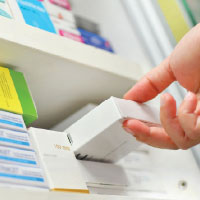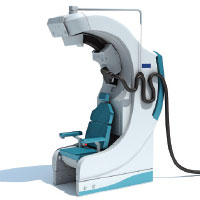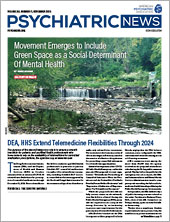Many ACOs Don’t Offer Medication for OUD
The percentage of accountable care organizations (ACOs) that began offering medication for opioid use disorder grew between 2018 and 2022, but nearly half of them still do not offer this treatment option. This
survey data was described in a report in
Psychiatric Services.
“Health care organizations with accountable care organization (ACO) contracts hold provider networks responsible for meeting quality and spending benchmarks for a designated patient population, which may provide motivation to prioritize population health goals,” wrote investigators at the University of North Carolina School of Medicine and colleagues. “Thus, ACO participants are well positioned to improve opioid use disorder prevention and treatment in primary and specialty care settings within their networks.”
The researchers surveyed all ACOs that had a Medicare or Medicaid contract in both 2018 and 2022. About 55% of organizations surveyed submitted responses to three separate questions that asked whether clinicians in the ACO provider network offered buprenorphine, naltrexone, and/or methadone; they were also asked whether the organization included outpatient substance use disorder treatment facilities in its provider network.
Between 2018 and 2022, the number of accountable care organizations offering at least one OUD medication increased from 39% to 52%. Of the three medications for OUD, buprenorphine was the most commonly available, offered by 51% of organizations in 2022.
Organizations with in-network, outpatient substance use disorder treatment facilities were much more likely to offer these medications compared with organizations with no in-network facilities (80% vs. 33%, respectively). ACOs in states with high opioid overdose mortality rates were not statistically more likely to offer these medications than ACOs with low opioid overdose mortality rates (54% vs. 50%, respectively).
“Despite modest advancement, the lack of [OUD medication] availability among ACOs (which have led population health initiatives for more than a decade) shows that even strong ACO performers may need more support (or scrutiny) to increase access to evidence-based opioid use disorder treatment for their patient populations,” the investigators wrote.
Dexmedetomidine During Surgery May Reduce PTSD
Patients who need emergency surgery following a trauma may be less likely to develop posttraumatic stress disorder (PTSD) if they receive dexmedetomidine during the operation, a
study published in
JAMA Network Open has found. Dexmedetomidine is an alpha-adrenergic agonist that has sedative, analgesic, and anxiolytic properties.
The study, by researchers at Suzhou Xiangcheng People’s Hospital in China, involved 310 adults aged 18 to 60 years with trauma who were undergoing emergency surgery at one of four tertiary hospitals in China’s Jiangsu Province. The patients were allocated to receive either intravenous dexmedetomidine (at 0.1 μg/kg hourly) or saline throughout the surgery and from 9 p.m. to 7 a.m. for the first three days following surgery.
One month after surgery, the researchers evaluated the participants using the Clinician-Administered PTSD Scale for DSM-5 (CAPS-5). The researchers also assessed the participants for other symptoms such as postoperative pain, delirium, nausea, sleep quality, and anxiety in the days after surgery and as well as at one month.
There was a lower incidence of PTSD in the dexmedetomidine group compared with the placebo group. CAPS-5 scores were also significantly lower in patients given dexmedetomidine relative to patients given placebo (17.3 vs. 18.9, respectively). Patients who received dexmedetomidine also reported better sleep and less anxiety in the days following surgery, and rates of delirium, pain, or nausea did not increase.
“The release of norepinephrine during or shortly after stressful and traumatic events can increase the formation of event-related fear memory, thereby inducing PTSD,” the researchers wrote. As an adrenergic agonist, dexmedetomidine “can reduce the consolidation, reinforcement, and formation of conditioned fear memory in the early stage of trauma by reducing the important source of norepinephrine in the central nervous system, so as to prevent the development of PTSD.”
Sleep Restriction Therapy May Improve Insomnia Symptoms
Cognitive-behavioral therapy (CBT) is a proven treatment for insomnia, but access to trained therapists is limited. A
study published in
The Lancet suggests that patients with insomnia may experience benefits from a brief intervention involving one component of CBT.
Investigators at the University of Oxford and colleagues conducted a pragmatic study to test the efficacy of a sleep restriction therapy—which teaches people to set regular sleep hours and limit their time in bed to those hours.
The researchers enrolled 642 adults with diagnosed insomnia from 35 primary care practices across the United Kingdom. These participants (97% of whom were White) were then assigned to receive sleep restriction therapy along with a sleep hygiene booklet or a sleep hygiene booklet only. Sleep restriction therapy was provided by a primary care nurse over four 15- to 30-minute weekly sessions—two in-person and two over the phone.
At enrollment, the average Insomnia Severity Index (ISI) score among the participants was 17.5; after six months, ISI scores dropped to 10.9 in the sleep restriction group and 13.9 in the sleep hygiene group, which was a statistically significant difference.
In addition, 42.0% of the participants in the sleep restriction group met the criteria for a clinically significant response (ISI improvement of 8 points or more), compared with 16.8% of those in the sleep hygiene group. The participants receiving sleep restriction therapy also reported better mood, quality of life, and (among workers) less absenteeism.
“Our findings create a new pathway for the treatment of insomnia disorder, an area where current practice is deficient and guideline-recommended treatment is rare,” the investigators wrote.
Long-Term Use of Acid Reflux Medications Associated With Increased Dementia Risk
Individuals who take proton-pump inhibitors (for example, the acid reflux medications Nexium or Prilosec) over longer periods of time may be at a greater risk of developing dementia, suggests a
report in
Alzheimer’s and Dementia.
“In this real-world population-based case-control study nested in a nationwide cohort of individuals aged 60 to 75 years in 2000 to 2018, PPI [proton-pump inhibitor] use was associated with an increased rate of all-cause dementia before age 90 years,” wrote the authors from Copenhagen University Hospital and colleagues.
The researchers examined associations between cumulative use of PPIs and dementia in a nationwide Danish cohort of 1,983,785 individuals aged 60 to 75. These individuals were then followed for up to 19 years until the first onset of dementia, emigration, death, or December 31, 2018, whichever came first.
During the follow-up period, there were 99,384 incidences of all-cause dementia.
“Exposure to PPIs was found to be associated with an increased rate of all-cause dementia occurring before 90 years of age regardless of time of treatment initiation according to the diagnosis. Longer cumulative duration of PPI use yielded higher risk estimates,” the authors wrote. “Further studies are warranted to determine if these findings represent a causal effect of PPIs on dementia risk and to explore risk differences according to age at dementia diagnosis and dementia subtypes.”
TMS Appears Safe for Fetuses and Newborns
Peripartum depression—the onset of depressive symptoms during pregnancy or the first month after giving birth—can have devastating effects on mothers and infants. A
meta-analysis published in
Psychiatry Research suggests women with peripartum depression may experience benefits from transcranial magnetic stimulation (TMS) without causing harm to their offspring.
Researchers at D’Annunzio University of Chieti–Pescara in Italy and colleagues compiled 23 articles that examined TMS in the treatment of perinatal or postpartum depression and included health data on fetuses or newborns. These studies included two randomized, controlled trials; five open-label trials; one nonrandomized case-control study; and 15 case reports/case series. Most of the studies involved conventional repetitive TMS (rTMS), though two (both case series of five women) involved the intermittent theta-burst stimulation (iTBS).
Overall, the data identified no significant health concerns in newborns. All 10 studies that conducted Apgar tests (Appearance, Pulse, Grimace, Activity, and Respiration) after birth showed normal results (average scores at least 8 out of 10).
Three studies of patients with postpartum depression found no effects of rTMS on lactation or maternal bonding. The two iTBS case series identified one infant that was large for gestational age and a second with meconium in the amniotic fluid, but no other complications.
“In light of the complex clinical management of pharmacological treatment during the peripartum period, rTMS represents a valid treatment option for [peripartum depression], even while breastfeeding,” the authors concluded.
They acknowledged that more randomized trials are necessary to understand optimal TMS protocols for this patient population. ■





